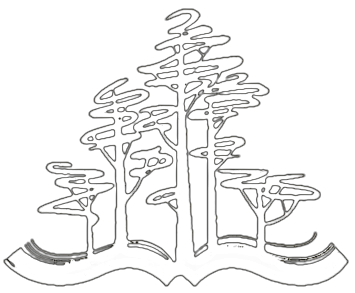Summer School on the Russian Literature. 2021.
Vol. 17. № 3-4
The article represents the text of an unpublished letter of I. A. Krylov addressed to his close friend Iakov Rostovtsev, resuming the impressions of reading Custine’s La Russie en 1839 French epigram composed by Krylov is discussed in the article in numerous contexts, such as early reception of Custine’s book in Russia, history of Krylov’s views on France, French language and culture, his epigrammatic poems.
Keywords: Ivan Krylov, Astolphe de Custine, La Russie en 1839, French verses of Russian poets, epigram.
Keywords: Ivan Krylov, Astolphe de Custine, La Russie en 1839, French verses of Russian poets, epigram.
Ekaterina Lyamina, Natalia Samover
„First and last French verses“
Ivan Krylov reads Marquis de Custine
Ivan Krylov reads Marquis de Custine
The article considers the conceptual significance of Alexander Pushkin for Solovyov’s ideas about the history of Russian poetry. Pushkin’s works becomes the basis for the formation of the literary continuity and the search for new ways of literary evolution.
Keywords: Vladimir Solovyov, Aleksander Pushkin, literary criticism, 19th century russian poetry, philosophy.
Keywords: Vladimir Solovyov, Aleksander Pushkin, literary criticism, 19th century russian poetry, philosophy.
Angelina Balabaeva
Alexander Pushkin and his poems in the context of Vl. Solovyov’s literary criticism about Russian poetry
The article is devoted to the study of the dynamics of the Superman created by V. Y. Bryusov observed in the process of analyzing the writer’s prose. Genius and madness are juxtaposed and presented as facets of the development of Bryusov’s superpersonalities. Understands how the researched author represents his Superman a madman a genius and/or a synthesis of these two states and also a hypothesis is put forward about the independent existence in the work of Bryusov of several types of the image in question, which stood out in the process of the analyzed search for the author.
Keywords: Valery Bryusov, Ubermensch, genius, madness, spiritual madness.
Keywords: Valery Bryusov, Ubermensch, genius, madness, spiritual madness.
Anastasia Polumordvinova
The image of the Superman in the work of V. Y. Bryusov: from genius to madness (based on the material of early prose and the novel
The Fiery Angel)
The Fiery Angel)
The article is devoted to some features of the image of heroes in the paraphrastic poems by A. K. Tolstoy The Serpent Tugarin, Ilya Muromets and Alyosha Popovich. The poet uses recognizable images of heroes and invests his own understanding of the nationality and ideology of heroism in his heroes. Tolstoy appeals to the origins (the heroic epic), as well as the creation and functioning of the author’s folklore and natural images in poems are considered.
Keywords: A. K. Tolstoy, epics, paraphrase, folklore commentary, real-biological commentary.
Keywords: A. K. Tolstoy, epics, paraphrase, folklore commentary, real-biological commentary.
Anastasia Rozhkova
Folklore and real comments on the poems on the epic plots by A. K. Tolstoy The Serpent Tugarin, Ilya Muromets and Alyosha Popovich
The article analyzes a fragment of The Minor, which tells about the Skotinin family, whose history, according to Pravdin and Starodum, originates before Adam. The author examines the motive in the context of European traditions, and also outlines a number of probable sources for the playwright. In addition, the specifics of the transformation and embedding of the motif in the text of the comedy and the individual features of the poetics of the comic Fonvizin are analyzed.
Keywords: Russian literature of the 18th century, D. I. Fonvizin, The Minor, N. G. Kurganov, sources.
Keywords: Russian literature of the 18th century, D. I. Fonvizin, The Minor, N. G. Kurganov, sources.
Darya Trushina
Pedigree satire in The Minor by D. I. Fonvizin and its tradition in European literature
In this article, Stalin’s Literary Prize is regarded as an institution, the work of which directly affected the formation of the socialist realist canon. The article’s perspective on the topic not only poses an analysis of the late Stalinism institutional culture but also the paper attempts to discover the stabilizing potential inherent in this institution, which could ensure the integrity of the cultural continuum of the late era of Stalin and through which a deep transformation of the mass consciousness deformed and traumatized by the military experience was carried out.
Keywords: Stalin’s Prize, literary canon, socialist realist canon, post-war literature, late Stalinism, institutional history of literature.
Keywords: Stalin’s Prize, literary canon, socialist realist canon, post-war literature, late Stalinism, institutional history of literature.
Dmitry Tsyganov
Stalin’s Prize in the system of the literary process in 1940s — early 1950s
The formation of the socialist realist canon in the institutional context
The formation of the socialist realist canon in the institutional context
The article discussed the creative reception of the antique genre models of the adventure travel novel and of the menippean satire and imaging systems of the texts of Petronius, Apuleius, Lucian and other ancient writers in the novel by A. Bitov „The Monkey Link“ (1993). The satirical modus, the utopian fiction and the dialectics of the „socratic dialogue“ are considered as the ways of the testing not only modern culture, but also culture in its relation to ontology, organic nature of culture, its abilities to preserve the spiritual memory of humankind, to determine the way of human existence. The intellectual pathos of the novel is hidden and at the same time is closed to the profane reader’s consciousness by the method of revitalization „familiarization“ of the collective collection of truth.
Keywords: Andrei Bitov, A Pilgrimage Novel, „The Monkey Link“, reception, antique novel, menippea.
Keywords: Andrei Bitov, A Pilgrimage Novel, „The Monkey Link“, reception, antique novel, menippea.
Ekaterina Bukhanova
Elements of the reception of the ancient menippeas in the novel by A. Bitov „The Monkey Link“
The article is devoted to the peculiarities of the St. Petersburg / Leningrad text in the poetry of Viktor Krivulin. The focus of the present study is directed to 22 poems (including 12 unpublished) by Krivulin written in the 1960s. Special attention is paid to the methods of language coding of the urban text and the mechanisms of transformation of stable substrate elements within the artistic picture of the author’s world.
Keywords: V. B. Krivulin, St. Petersburg text, mythopoetics, language code of the city.
Keywords: V. B. Krivulin, St. Petersburg text, mythopoetics, language code of the city.
Evgeniya Kovaleva
The St. Petersburg text in the poetry of Viktor Krivulin of the 1960s
The article discusses the motive of limited knowledge in ancient Russian texts: The Poem about the Golubinaja kniga and the Lucidarius. In the focus gets the moment of its appearance in the works, the influence on the structure of the text, its meaning, the connection with other motives. Functions of the motive allow us to consider it as a feature of the erotapocritical texts.
Keywords: Erotapokriseis, The Poem about Golubinaja kniga, „Lucidarius“, motive of limited knowledge.
Keywords: Erotapokriseis, The Poem about Golubinaja kniga, „Lucidarius“, motive of limited knowledge.
Olga Dokuchaeva
The motive of limited knowledge in The Poem about Golubinaja kniga and „Lucidarius“
The article considers one I. A. Goncharov in the novel The precipice to characterize Marfinka. The analysis of possible contexts that led to the use of this comparison and the components of the „memory of text“ allows us to identify the multidimensional nature of the butterfly image.
Keywords: I. A. Goncharov, The principe, butterfly, metamorphosis, „text memory“.
Keywords: I. A. Goncharov, The principe, butterfly, metamorphosis, „text memory“.
Olga Makarevich
The butterfly effect, or about one comparison in I. A. Goncharov’s novel The precipice
Contacts
summerschool@list.ru
В оформлении сайта использованы материалы Freepik.


